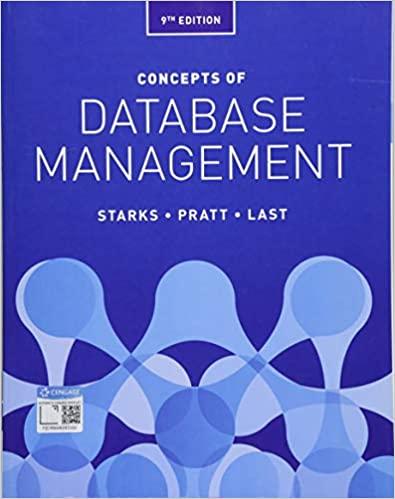Question
1.Consider a typical DNS query between a client `bianca.umass.edu` and her local dns server. Suppose the round trip time (RTT) between the `bianca` and her
1.Consider a typical DNS query between a client `bianca.umass.edu` and her local dns server. Suppose the round trip time (RTT) between the `bianca` and her local dns server, `ns1.umass.edu`, is 10 milliseconds. Further suppose that the RTT from `ns1.umass.edu` to any other Internet site is 100 milliseconds. Finally, suppose that the caches of all DNS servers are initially empty, but have the space required to hold any results that are retrieved.
a.(4 points) `bianca` performs a DNS lookup for the IP address of `cassie.umass.edu`. What is the sequence of events (queries and responses) that occurs?
b.(1 point) How much time elapses between when she sends her query to `ns1` and when she receives a response from `ns1`? Show your work.
c.(2 points) Immediately after `bianca`'s query completes, `david.umass.edu` sends a request to `ns1` for the IP address of `eleanor.bar.com`. What is the sequence of events that occurs?
d.(1 point) Immediately after `david`'s query completes, `bianca` looks up `eleanor.bar.com`. What is the sequence of events that occurs?
2.(2 points) Suppose you can access the caches of the local DNS servers of your ISP. The data in the cache includes both the time each record was last requested by a client as well as its TTL. Propose and explain a method to roughly determine the most popular web servers among users of your ISP.
3.We've seen caching occur at a local DNS server, in a user's web browser, and in an HTTP caching proxy in an institutional network. Answer the following questions for two of these three types of caches: browser cache, HTTP caching proxy server, local DNS server cache (so over all you'll have four answers, two each to the two questions below).
a.(3 points) Is the information returned (from a browser, HTTP caching proxy, or DNS cache, if cached there) guaranteed to be the same up-to-date information as what is stored at the remote origin server where this information is maintained? (Hint: there should be at least one YES and one NO in your answers to this question.)
b.(3 points) If your answer to a question in (a) is YES, then how does the cache (browser cache, HTTP caching proxy, or local DNS server cache) determine that the content is up-to-date? If your answer to a question is NO, then how will that locally cached copy ever be synchronized with (i.e., the same as, at least for some amount of time) the up-to date version at the origin server?
Step by Step Solution
There are 3 Steps involved in it
Step: 1

Get Instant Access to Expert-Tailored Solutions
See step-by-step solutions with expert insights and AI powered tools for academic success
Step: 2

Step: 3

Ace Your Homework with AI
Get the answers you need in no time with our AI-driven, step-by-step assistance
Get Started


